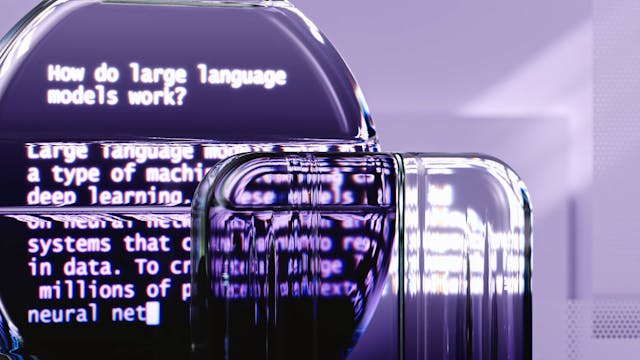6 Best ChatGPT Alternatives
ChatGPT is widely regarded as the leading AI chatbot, but it is by no means the only one available. Depending on your particular requirements, you may find that ChatGPT isn't the best fit. While it is a versatile tool, it can sometimes lack effectiveness compared to more specialized alternatives. Therefore, exploring a variety of ChatGPT substitutes is advisable.
I have been exploring and documenting my experiences with ChatGPT since its launch, dedicating the last ten years to tracking advancements in AI. Lately, my efforts have focused on assessing the strengths of ChatGPT alongside areas needing improvement, which has led me to test multiple competing options thoroughly.
Cabina.AI
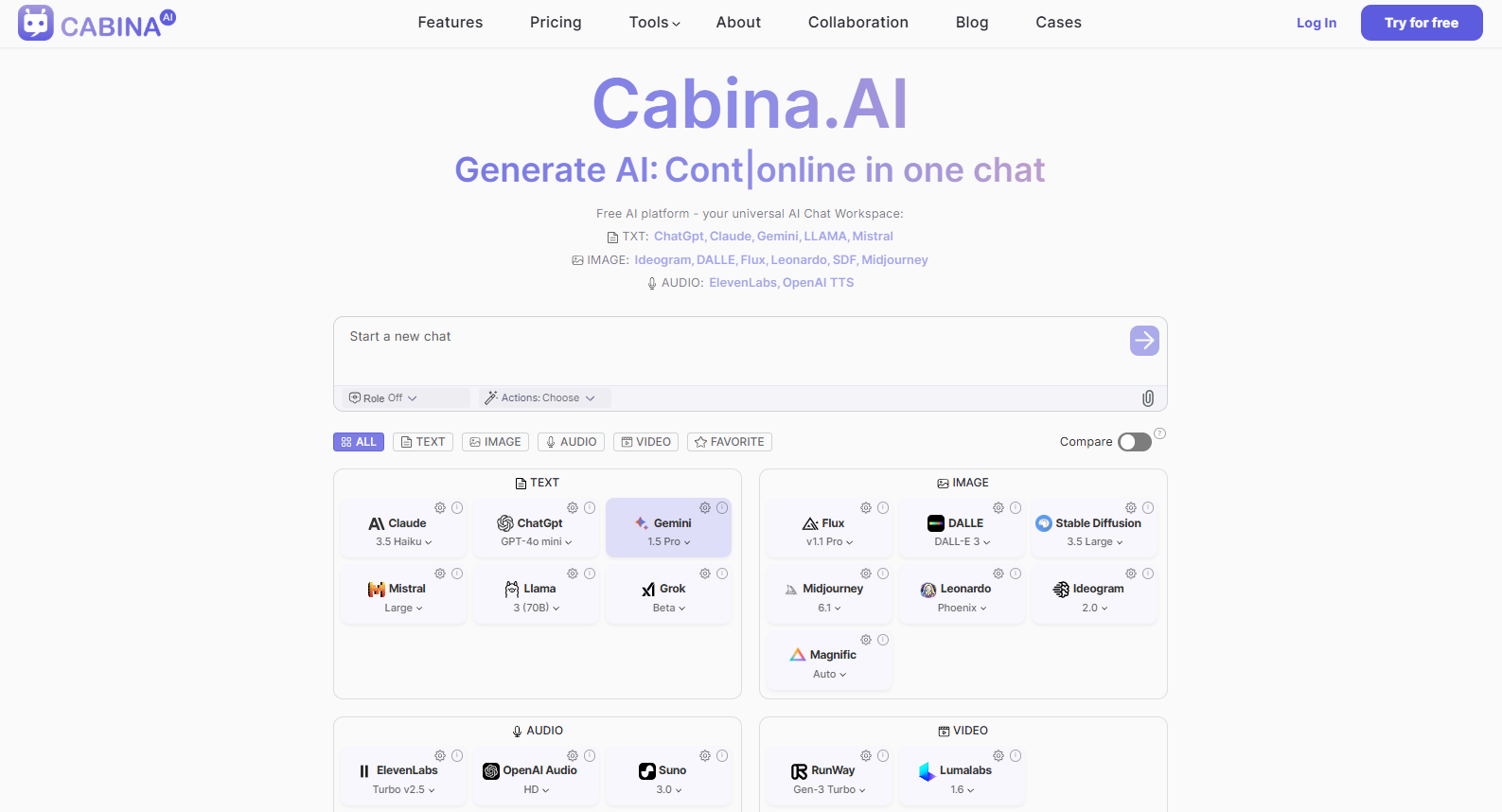
Through extensive research on several alternatives, one platform that consistently emerges as a frontrunner is Cabina.AI. It potentially stands out as the premier substitute for ChatGPT.
Cabina.AI serves as a comprehensive workspace that grants users access to a wide range of established AI systems. This flexibility allows users to easily switch among various models and language systems, including ChatGPT https://cabina.ai/llm/chatgpt , Gemini, Cloud, and Llama, enabling them to tailor their usage to specific tasks.
The platform features a powerful set of AI tools https://cabina.ai/tools , comprising advanced image generators such as DALL-E, Midjourney, and Stable Diffusion, as well as text-to-speech capabilities from ElevenLabs. Moreover, it offers practical functionalities like text paraphrasers, content humanizers, summarizing tools, sentence expanders, and many others. This level of specialization guarantees high-quality results that meet users' specific needs.
For users who often rely on ChatGPT and other text or image language models, Cabina.AI simplifies their workflow by removing the need for multiple subscriptions and the hassle of switching between different systems to determine the best output for content or image generation. A single subscription to Cabina.AI consolidates access to various AI tools under one platform, which is truly impressive.
Key Benefits:
- Access to multiple language models through one account.
- The ability to switch between different models of the same language.
- Options for generating text, images, animations, and converting text to voice.
- The capability to compare results from different models, such as running the same prompt on both ChatGPT and Gemini simultaneously to find the best option.
- An extensive array of predefined tones for content generation.
- Customization of tone of voice options.
- Complete chat history to revisit previous conversations whenever desired.
- The functionality to upload documents and analyze their content.
- And many other features.
Llama

Meta is a significant player in the AI landscape, typically making many of its models available to the public, including the powerful multimodal Llama 3.2 large language model. By opting to open-source, others can develop upon this AI framework without the need to spend enormous resources to build a new model from scratch.
Llama 3.1 debuted in July, offering three versions:
- 8 billion parameters
- 70 billion parameters
- An innovative model with 405 billion parameters
In September, Llama 3.2 was released, introducing two smaller versions capable of image analysis at 11 billion and 90 billion parameters.
This system is the backbone of Meta AI, which powers virtual assistants in platforms such as Ray-Ban smart glasses, Instagram, and WhatsApp. It also operates independently as a platform called MetaIA.
Meta aspires to enhance MetaAI's functionality, continually investing in new models. There are expectations that Llama 4 will necessitate tenfold the training resources required for Llama 3.
Llama 3.1 is engaging and user-friendly, representing a significant improvement over its predecessor, which had issues like reluctance to respond and overly stringent guidelines. A more powerful version of Llama 3 is also in development, promising to transform the landscape.
Open sourcing allows different organizations and individuals to create their own versions of the model. As a chatbot, Llama serves as an entertaining and interactive companion in both its open-source and Meta-centric configurations.
Gemini
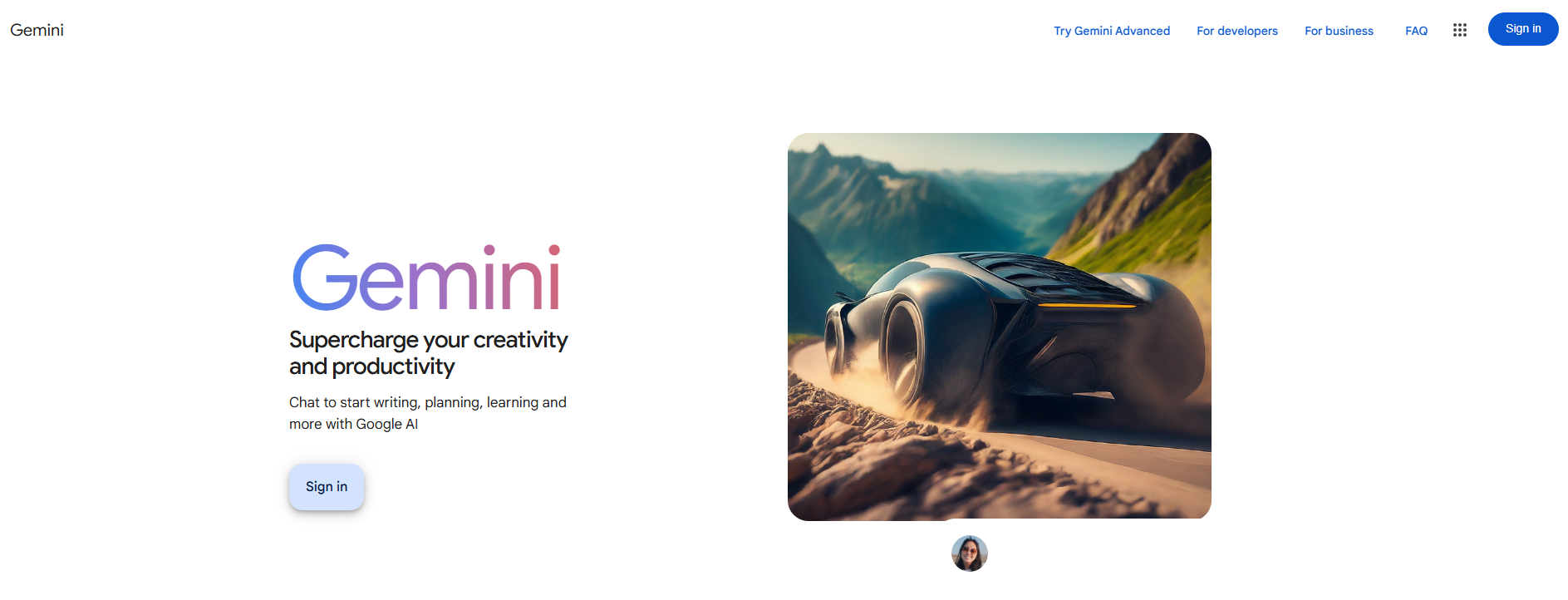
Gemini is Google's AI chatbot, celebrated for its easy-to-use and engaging interface. Similar to ChatGPT, it allows users to input text for assistance with coding, story creation, information seeking, and more. Users can also submit images for analysis and engage in interactive discussions about the visuals.
Among ChatGPT alternatives, Gemini is my top recommendation, as it is always accessible (no plugins required) and offers intuitive navigation.
Noteworthy Features:
- Delivers accurate, location-sensitive answers.
- Converts results into new Gmail messages or exports them to Google Docs or Sheets.
- Allows pinning of previous conversations for convenient access.
- Offers options for sharing discussions through links.
- Capable of generating images.
- Permits users to select alternative responses without retyping prompts.
- Features free and easily manageable extensions.
Perplexity
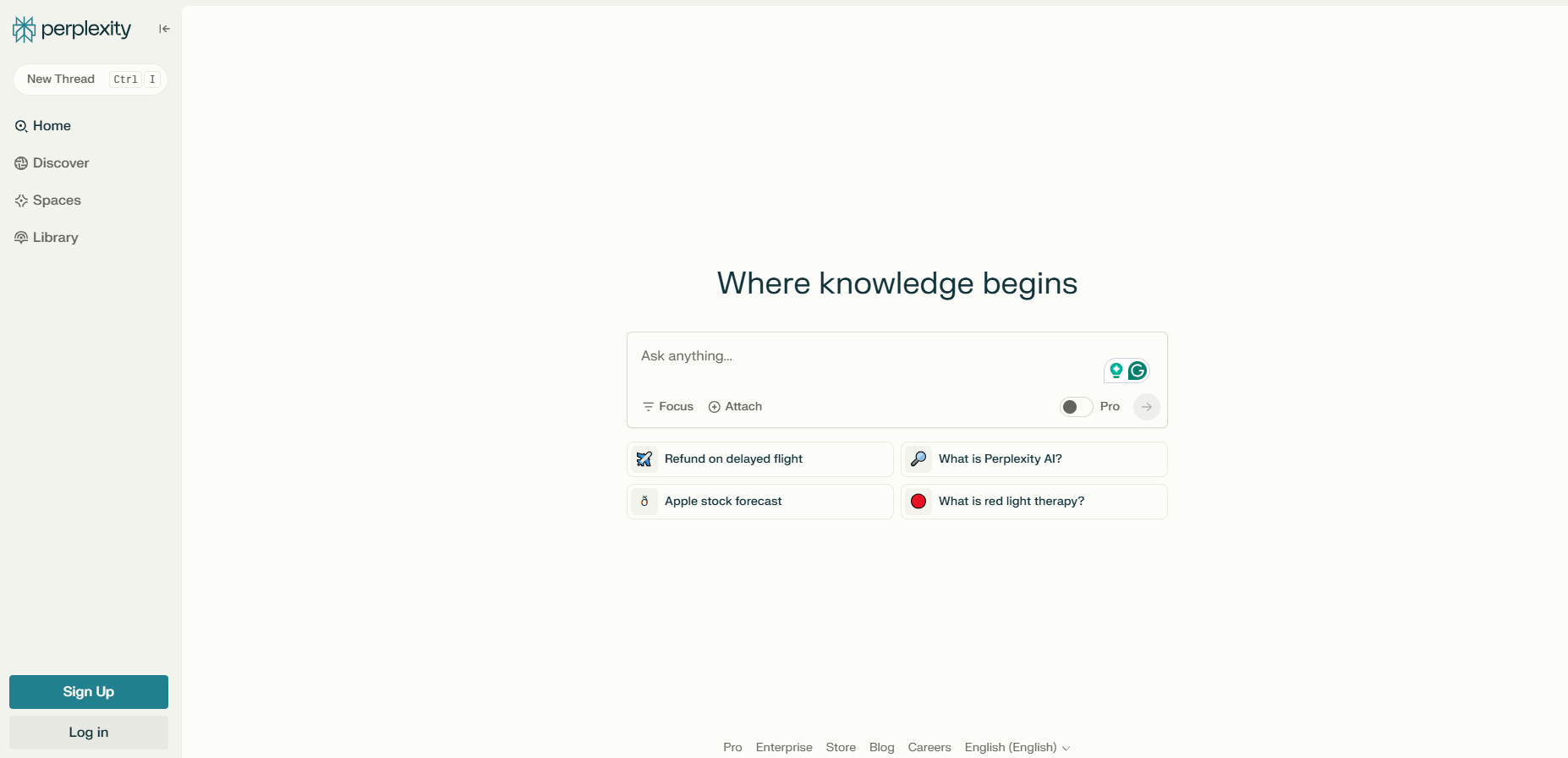
While Perplexity is often viewed as a Google alternative rather than a conventional AI chatbot, it provides functionality that allows users to ask questions and receive conversational replies, which creates a chatbot-like experience. This blend of interactive messaging with well-organized, real-time search results distinguishes it as one of the top alternatives to ChatGPT.
Perplexity grants extensive access to information and connects with various AI models. The free version allows usage without the need for account registration. It provides conversational answers and consistently cites sources.
Users can narrow their searches to specific domains such as academic articles, computational knowledge, YouTube, or Reddit. There is also an option to disable web searches, creating a user experience akin to ChatGPT.
Recently, Perplexity has launched a "Pages" feature that compiles and shares search results on a single webpage.
Claude
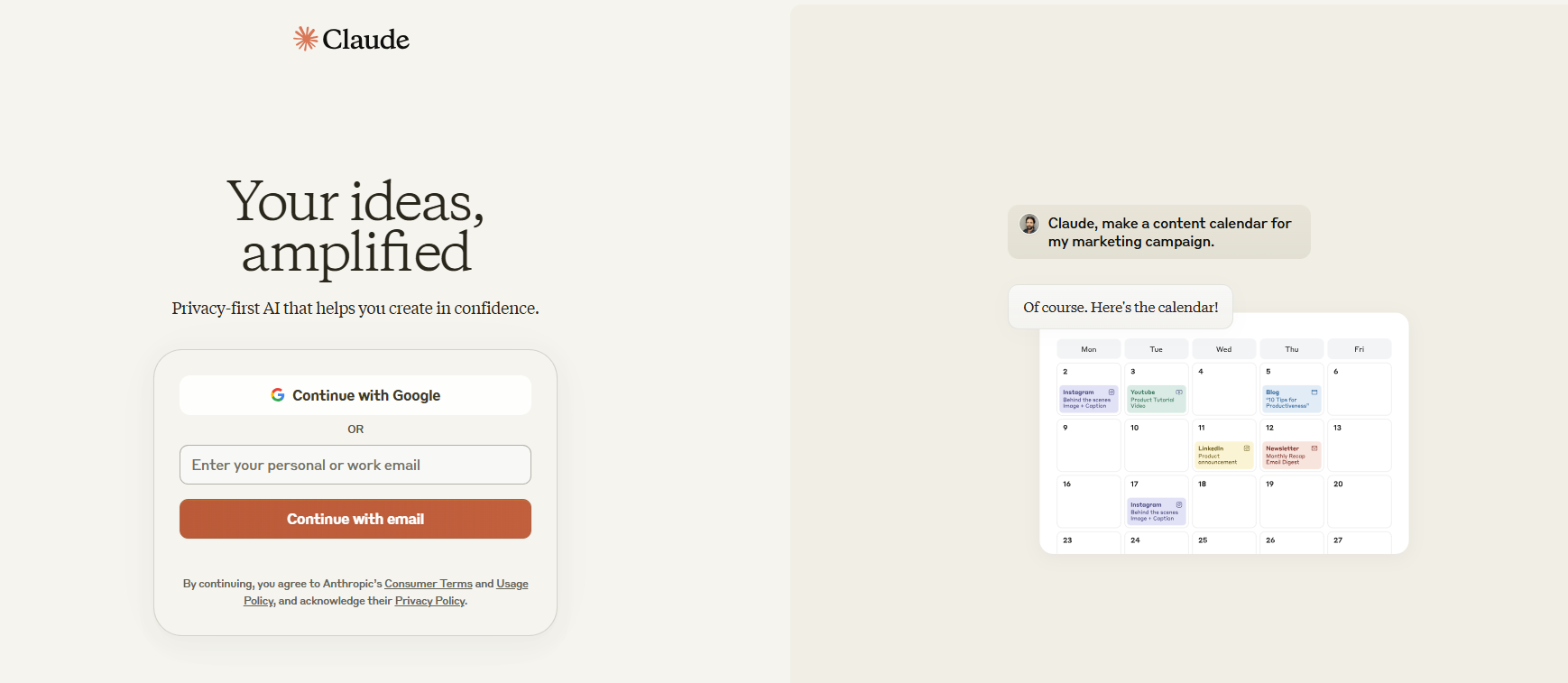
Claude, an AI tool developed by Anthropic, is designed for generating long-form content. This tool is focused on ensuring a safer user experience while creating AI-generated text. Compared to ChatGPT, the responses from Claude frequently feel more natural and in line with user expectations.
Claude reliably provides detailed and clear responses, whether asked to summarize articles or assist in brainstorming ideas. It has also proven valuable for creative endeavors, such as crafting blog outlines and drafting reports, consistently performing impressively in those areas.
Key Features:
- Engages in deep, context-sensitive conversations.
- Effectively handles both straightforward tasks and complex inquiries.
- Implements enhanced safety measures to reduce harmful or biased outputs, showcasing a commitment to ethical AI principles.
Limitations:
- Some users have noted slower response times when processing numerous inputs simultaneously.
- Lacks capabilities for creating images or handling media beyond text.
Jasper
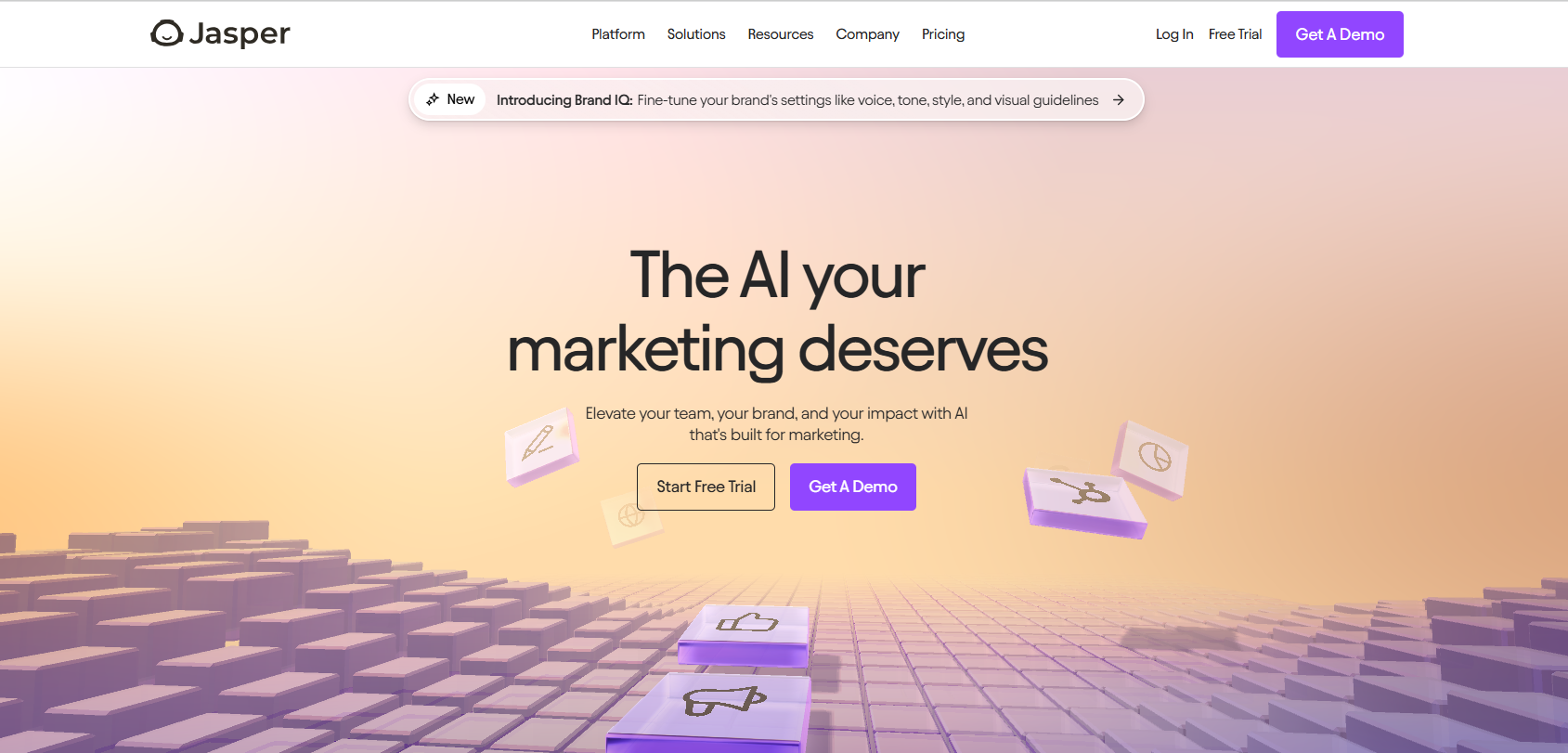
In contrast to ChatGPT's broad applicability, Jasper is specifically optimized for marketing-related tasks, making it less suitable for those outside the marketing realm.
Jasper provides structured guidance with step-by-step assistance, unlike ChatGPT, which tends to take a more laissez-faire approach. Rather than spending excess time determining prompts, Jasper guides users through the creation process, offering numerous templates for emails, product descriptions, and blog posts that enable efficient content generation and focus on desired outcomes.
Using Jasper requires users to supply essential details. For example, when composing a blog post, you must enter the topic, intended audience, key points, and a call to action (CTA), whereas in ChatGPT, managing these requirements can be more cumbersome unless utilizing a specialized version of GPT.
Jasper's chat interface resembles that of ChatGPT, yet it also offers enhanced support for crafting effective prompts, incorporating a button for prompt enhancement and a comprehensive library of content ideas.

